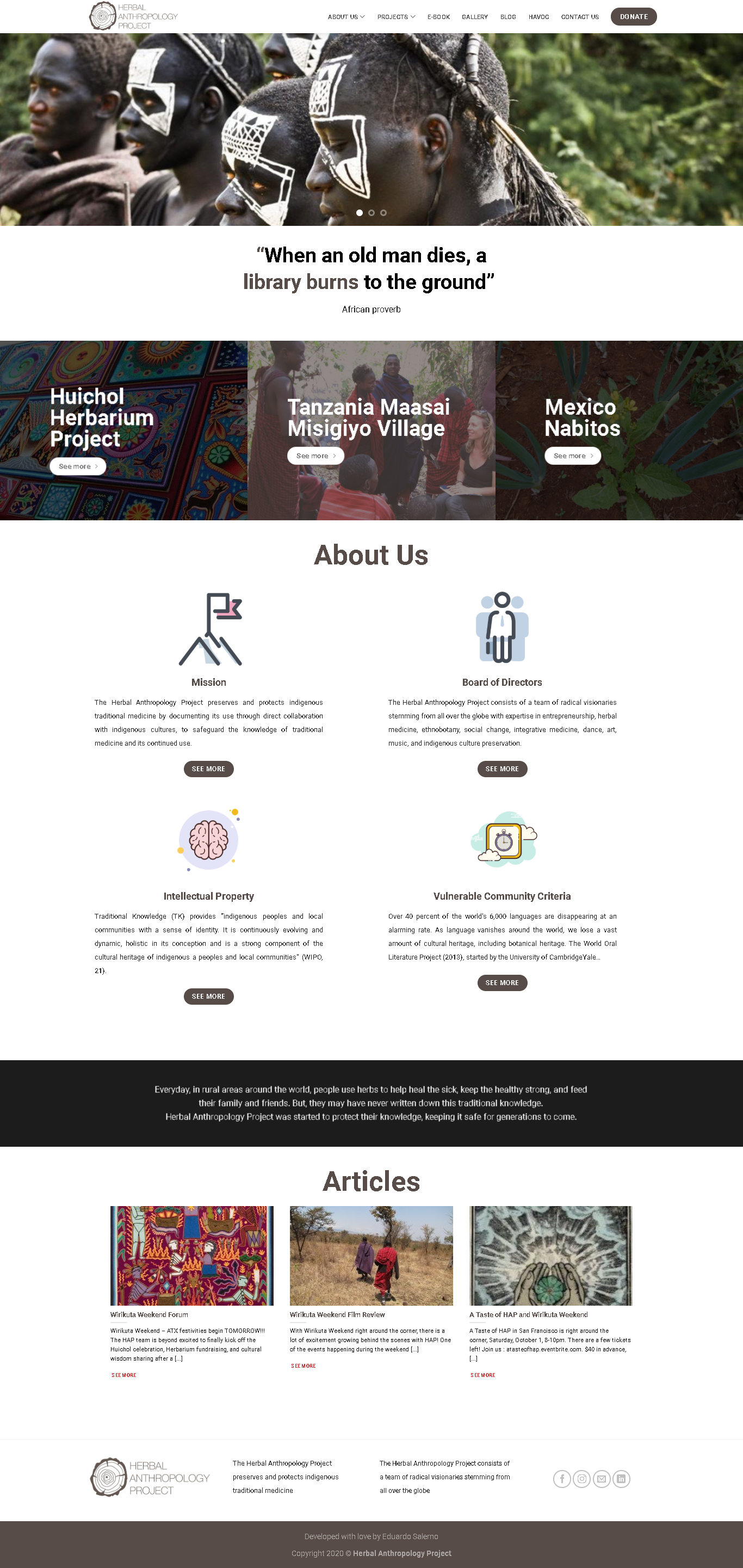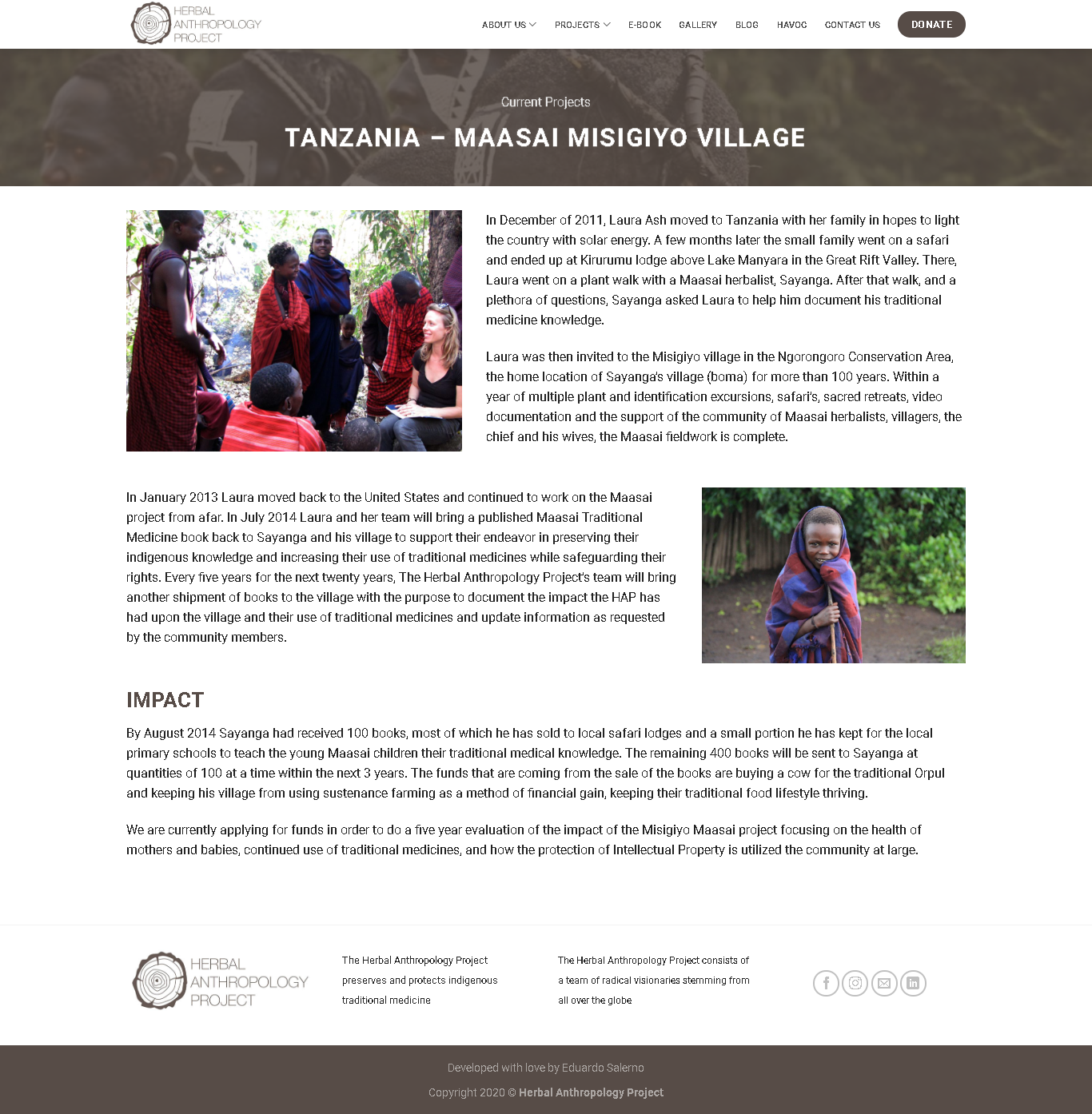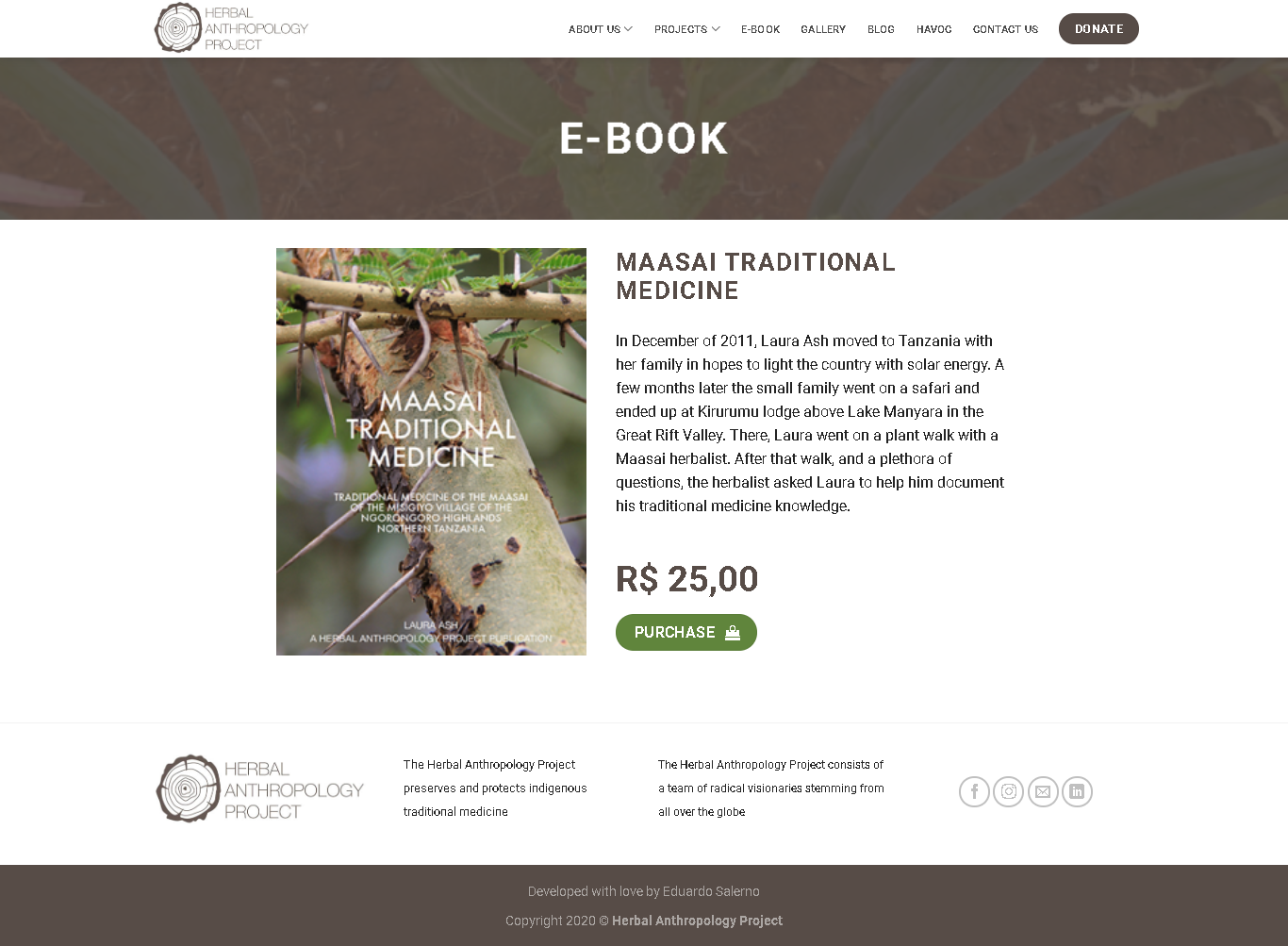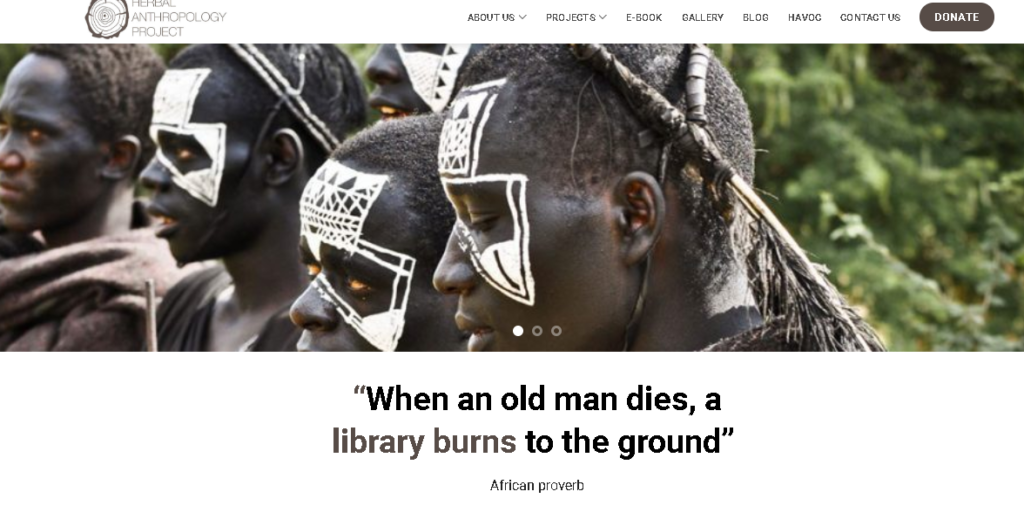Herbal Anthropology Project protects indigenous traditional knowledge by directly collaborating with indigenous communities in the documentation of their traditional medicine, increasing resilience to globalization and climate change.
WHAT WE DO:
Herbal Anthropology Project is a 501(c)3 organization founded in 2013, serving the global community by assisting in the documentation and protection of indigenous traditional medicine. Traditional medicine is one form of traditional knowledge (TK) which rightfully belongs to the indigenous population that uses it. The HAP protects access to traditional medicine by utilizing the framework of intellectual property (IP) for the indigenous population we work with. We accomplish this by facilitating the documentation of traditional medicine information led by the indigenous community members. HAP organizes and manages each community’s TK and IP in secured documents with the indigenous communities determining what is public and private (sacred) information.

The deemed public information can be published in a written herbal medicine book, if the community wishes, available online and/or printed format. The published book will be delivered back to the community with appropriate copyrights and IP protection in place. The community determines what to do with the published book; whether they want to use it for an economic support and/or educational and historical purposes. With cross cultural sensitivity HAP supports each community to utilize their traditional medicine information as they see fit.
HOW WE BEGAN:
HAP began when founder Laura Ash, a clinical herbalist and entrepreneur, traveled to Lapland Sweden during the winter of 2011. Laura met with a Sami herbalist who was the only one of her community using traditional medicine of the Sami people. Upon receiving this shocking news, Laura was excited and motivated to collaborate with indigenous communities around the world who were also experience this rapid acculturation and traditional knowledge loss. The following year Laura lived with her family in Tanzania and during a safari was approached by Sayanga, a Misigiyo Maasai herbalist, who asked her to help him write down his villages traditional medicine. After a year of collaborative documentation with Sayanga and his village, Herbal Anthropology Project was born. During that year Laura was shocked to learn about the world of Intellectual Property and the role she would now play in the “ownership” of the Misigiyo’s village knowledge. After learning about the Traditional Knowledge Division of the World Intellectual Property Organization, Laura decided to formalize HAP with the mission that future generations would be able to reference and use the information and to protect their Intellectual Property (IP) rights.

The published Maasai Traditional Medicine book was published June, 2014 and delivered to Sayanga in Tanzania August, 2014. Sayanga received 100 books in late August, 2014, and within two weeks has sold 80 books to safari lodges and tourists. Sayanga and the Misigiyo village are using the funds to educate children about their Traditional Knowledge in their primary school classes. 400 more books will be shipped within the next five years.
WHAT MAKES US UNIQUE:

The HAP fills a unique niche in the preservation, conservation and protection of Traditional Knowledge (TK), specifically traditional medicine. We collaborate with vulnerable communities in order to support the preservation of their traditional medicines by the means of IP. By establishing strict guidelines to safeguard the TK and IP of our partnered communities we can defensively and positively protect their traditional knowledge and medicines. By defensively protecting TK we are able to stop people outside of the indigenous communities from establishing rights to any IP or TK while positive protection “empowers the communities to promote their TK, control its use and benefit from its commercial exploitation” (WIPO, 16). Collaborative documentation is key to safeguarding IP and TK. The HAP accomplishes this by “creating an environment of mutual confidence and trust this may involve, depending on the circumstances, speaking to the right leader, representative or elder, exchanging gifts; sharing family experiences or stories, etc” (WIPO, 18). This allows every community to determine which information is placed in the public domain (published book), and information to be secured and protected.
Enter the official website: https://herbalanthropology.org/

Confira meus ultimos trabalhos:
Site para Arquitetura
Site para Vereador
Site para Balada Russa
Site para Balada
Site para Balada
Site para Empresa de Takoyaki
Site para Agência de Intercâmbio
Site Corporativo para Empresa de Tecnologia
TENHA UM SITE COM TECNOLOGIA DE PONTA E COM UM EDITOR EXCLUSIVO!